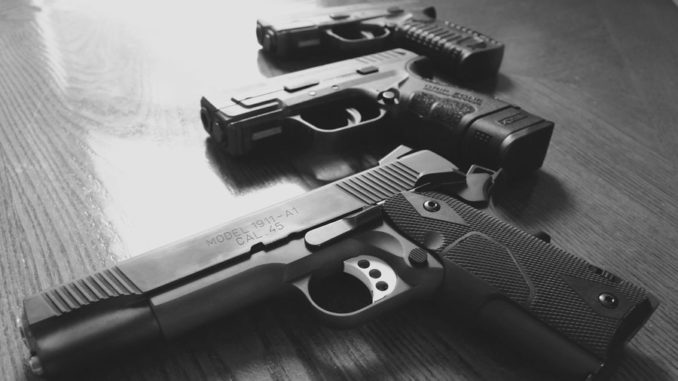
If there is any tribe of the Nigerian elite that is not at its wits end as a result of the pervasive and grave level of insecurity in the land, such must belong in the corridors of power where desperate efforts at self-preservation have given rise to impaired judgment. Lately, the expression of frustration and angst at the Federal Government’s sloppy handling of the security situation has uncharacteristically achieved bipartisan congruence, which underscores the momentous concern for the seemingly obdurate security challenges. The condition is even more disturbing to the discerning because the government’s strategy at tackling insecurity has been largely suboptimal, and perhaps insincere, for reasons of despicable primordial partisan interests and considerations. The state of affairs has become so sordid and frantic that some disillusioned compatriots, including heads of sub-national government, have started suggesting somewhat precipitate cures to the problem of insecurity in the country. The latest came from the stable of the Taraba State governor, Darius Ishaku, who recently appealed to the Federal Government to allow all Nigerians to bear firearms to defend themselves against an army of non-state actors of different but pernicious variants that have more or less seized the monopoly of violence from the constituted authorities.
The governor’s remediation proposal may seem impetuous but judging by the horrendous experiences that citizens of his state, including government officials, have had at the hands of the outlaws, it will be difficult to condemn his proposal outright. The situation is not even helped by the feeling in the state’s official circles, not forgetting an outright accusation by a prominent citizen of the state, that the appalling level of insecurity in the state has the tacit support of the central government. That allegation was a weighty one at the time it was made. However, a major but unfortunate incident at Ibi, Taraba State, shortly after that accusation, lent enormous credence to the Federal Government’s indictment by the foremost indigene of the state who is also a retired senior military officer. The said Ibi incident resulted in the brutal murder of three police officers and two civilians while five others sustained injuries. The policemen had successfully arrested and appropriately restrained Hamisu Bala Wadume, a suspected bandit and kidnap kingpin, and were in transit to Abuja when they were attacked by soldiers who ‘rescued’ and released the suspect after they had destroyed his restraining handcuffs! Against this backdrop and given several mind-boggling incidents in the state and other parts of the country, can one really blame the governor for advocating that every Nigerian be allowed to own guns, which according to him, will scare criminals from unleashing terror on law-abiding citizens?
Nonetheless, as seemingly expedient as the governor’s suggestion may appear given the prevailing security situation in his state and the country, it is imperative to state that the proposal is inappropriate and counterproductive, judging by the experiences of the advanced countries that have gone that route. The suggestion is a manifestation of the horrible state of insecurity across the country. And indeed, it is an expression of helplessness by the governor whose state has continued to witness gruesome killings by bandits and other criminal elements. Other state governors may not have called for unbridled ownership of firearms by citizens, but they have also claimed to be overwhelmed by the problem of insecurity. Thus, while the governor of Taraba State may not be chastised for his proposal as he was apparently despondent and literally pushed to the precipice by the dreary handling of the security situation in the country, it is still imperative to note that his theory begs the issue, if the experience of a country like United States is anything to go by. Learning from that less than salutary experience, it is evident that the inherent risks or dangers in every Nigerian owning a gun surpass the assumed merits by far.
What is needed is the introduction of state police, and not the kind of cosmetic measures being adopted to tackle internal security by some sub-national entities. The veritable issue has always been the absence of political will, especially at the centre, to allow the establishment of full-fledged state police under the state governors, with personnel not only drawn from the indigenes of the state but also from the localities where they will be ultimately deployed to serve. Sadly, rather than facing this issue frontally, the Federal Government is strongly denouncing state policing, perhaps with a view to obfuscating the real challenges that have brought the country to this dire straits. For as long as insecurity continues to spike in different parts of the country, with the government being unwilling to consider the institution of state police as a pragmatic solution in the circumstance, for so long will suggestions, from the patently ludicrous to the scary and dangerous, continue to pour in, as different nationalities seek to disentangle themselves from the perilous web of insecurity in the country.
END

Be the first to comment